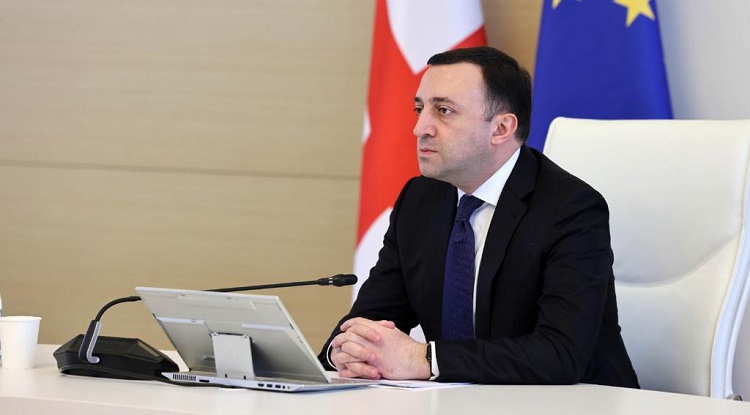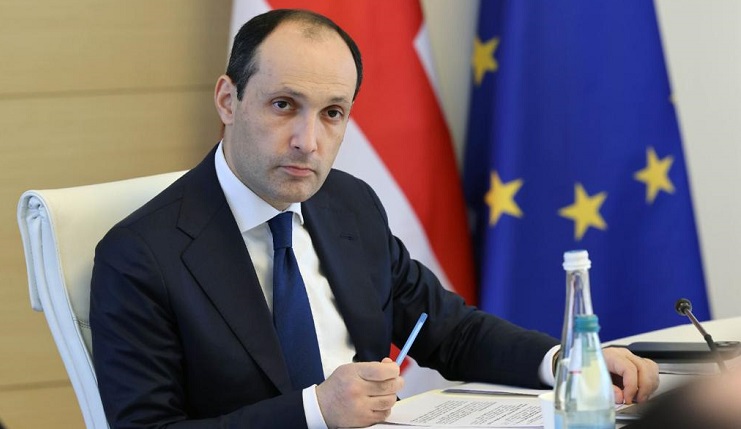Gov’t terminates investor agreement on major HPP project, announces engagement in construction

A Government meeting was held on Monday, which discussed the topic of Khudoni HPP. Photo: Government press office
The Georgian Government on Monday announced it would seek to announce a new tender on the construction of the Khudoni Hydro Power Plant, projected to become the second largest HPP in the country, with “active involvement” of the state, after terminating the agreement for the project with the previous investor.
The initiative on building the estimated $1 billion facility in the country’s north-western Svaneti region will proceed with new partners after the annulment of the deal with British-Indian Trans Electrica, which had failed to build the HPP first projected a decade ago.
Following the weekly Government meeting on Monday, Economy Minister Levan Davitashvili said the new tender on the construction of the plant would be announced next year.
Our approach is to implement such large-scale, strategic projects with an active participation of the state”, the Minister said, noting the Khudoni project was “of utmost importance”.
 Davitashvili has pointed to the importance of implementing large-scale, "strategic" projects with the Government's engagement. Photo: Government press office.
Davitashvili has pointed to the importance of implementing large-scale, "strategic" projects with the Government's engagement. Photo: Government press office.
Originally planned back in 1979, the construction of the HPP was stopped in 1989 amid political and economic turmoil in the final years of the Soviet Union and protests over environmental concerns.
The previous United National Movement Government signed a deal for the facility with Indian Trans Electrica in 2011, with construction works expected to start in April 2012. However, the company, which later incorporated in the British Virgin Islands, was unable to meet the predefined terms.
The project provides for the construction of a 702 MW HPP with a 200-metre-high concrete arch dam and a 364 million m3 water reservoir on the Enguri River, near the village of Khaishi in the Zemo Svaneti region.
When completed, the Khudoni plant will become the second largest HPP in the country after the Enguri facility supplying the country’s Russian-occupied region of Abkhazia, and will reportedly cover 20 percent of Georgia’s annual power consumption.
The Government meeting also discussed a bill proposed by the Economy Ministry on electronic commerce, drafted to regulate legal questions as part of the Deep and Comprehensive Free Area deal signed with the European Union in 2014.
 Tweet
Tweet  Share
Share